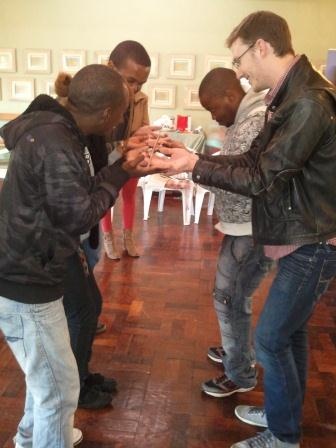
Developing high level of trust in between team members is a key component in guaranteeing a high standard of service delivery for the young people we are working with. Therefore today was dedicated to team tasks focusing on senses that a leader can expand its awareness of the people he/she is working with. Who could imagine that a simple garden stick can arouse and invite to discuss around those topics. I dare you… we did it!! The below picture is proof to that.

The second session makes us discover or revise the different kind of leadership which can be applied to different professional situations. It has been followed by a collective application. We learned how to be directive, democratic, affirmative, how to be humble, how to be visionary and how to produce other leaders.
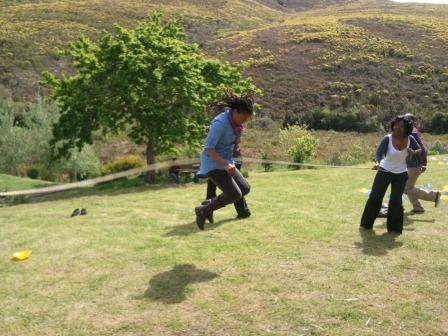
Frustration is also part of professional life and absolutely normal. It matters to identify the symptoms, and how to remedy from it. This feeling, which pollutes and reduces the human efficiency in interpersonal relationships, needs to be decontaminated as soon as possible.
To conclude the day, each and every staff discussed intensively on professional issues they are encountering within the organisation. No one gets shot. We succeed to do it in a climate of truth, respect and understanding.
We are looking forward tomorrow to give you more feedback.
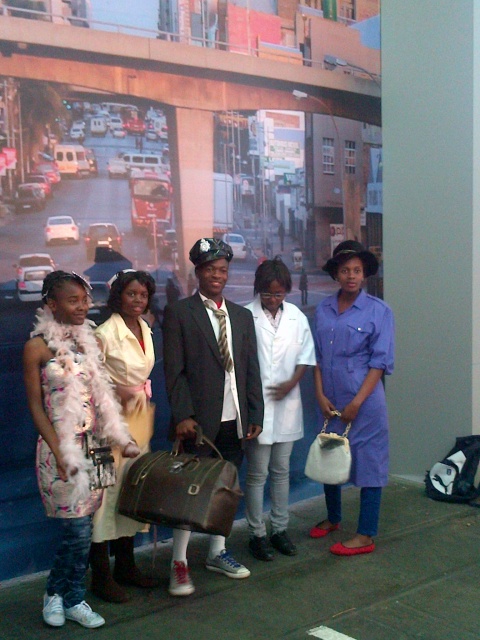
Who said young people couldn’t create, direct, produce, film and act in their own movie.
About 30 Ikamvanites in Gauteng had the opportunity on Saturday 22nd of September 2012, to go onto a professional movie set in Johanesburg at The Home Movie Factory and create their own master pieces.
The Home Movie Factory is an initiative created by Michael Gondry upon the idea that filmmaker creativity should be cultivated and shared as much as possible. Michael said,“I don’t intend nor have the pretension to teach how to make films. Quite the contrary. I intend to prove that people can enjoy their time without being part of the commercial system and serving it. Ultimately, I am hoping to create a network of creativity and communication that is guaranteed to be free.”
The Ikamvanites arrived to a ready-to-use film set and equipment which made an infinite number of storylines possible. The learners got to work independently and had creative control over all aspects of the movie and this included the genre and title of their film, the script, the acting and actual filming.

After three hours, the learners were able to see a screening of their film and were given DVD copies of the final product.
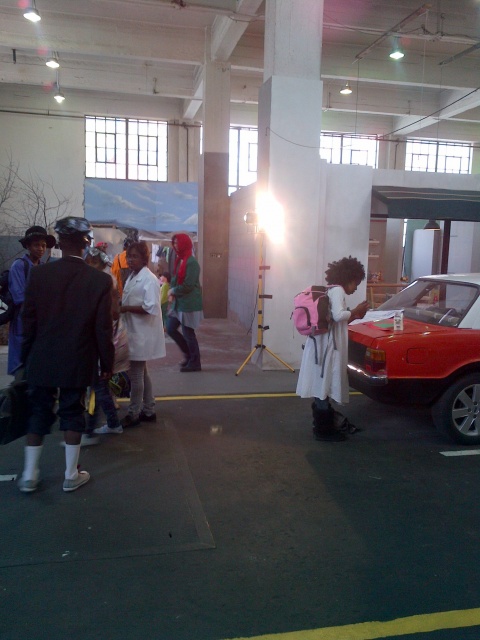
WOW is all I can say. It was amazing experience! We definately have some very creative young Ikamvanites here in Gauteng.
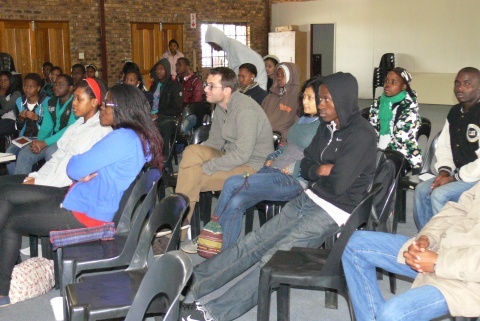
A mentoring workshop was held at the Ebony Park branch during the weekend, fascilitated by Nomfuzo Ntolosi, a life coach, of The Coaching Centre, with experience in running mentorship workshops. Aspects covered by the the workshop include:
– career mentoring, the responsibilities of a mentor and mentee
– the mentoring approach, managing expectations, boundaries, relationship building, signing on and smooth dissolution
– looking after (self) the mentor
– communication with Ikamva Youth as well as identifying risks

There are already some Grade 12 learners who have been matched with a mentor. The mentor commits to two hours’ communication every month through various forms of communication networks. The first meeting is facilitated by the IkamvaYouth office, where the mentor will get to meet the mentee, and they will sign a mentorship agreement. Thereafter, the IkamvaYouth office must be informed of any meetings away from the office, to which the mentee’s parent or guardian must consent. Grade 12 learners were part of the participants and this workshop gave them insight on what mentorship is all about.
The current and potential mentors who attended were from African Bank, The Helen Suzman Foundation, MISTRA as well as the tutors from Ivory Park and Ebony Park branches. The turnout for the event was great, regardless of the rainy and chilly weather. The session was interactive which gave participants an opportunity to express their views as well as their experiences throughout the session.
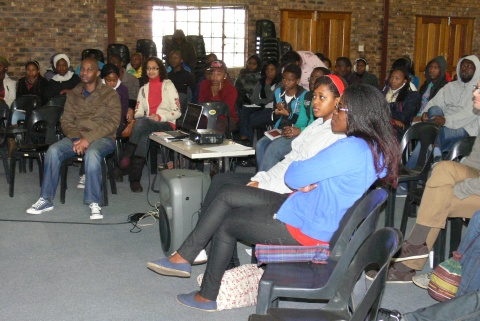
The overall feedback was that it was an informative, very helpful session and was ideal to give a head start for mentoring young people in any given setting. A positive response was received from the evaluations done at the end of the workshop. Thank you to everyone that attended regardless of the weather conditions, your attendance made this workshop a success. The target is to have all grade 12 learners mentored, and thus we look forward to having more mentors coming on board. We are also looking forward to all the fruits that the mentoring will bear in ensuring the learners access tertiary opportunities, and are motivated to achieve in life.
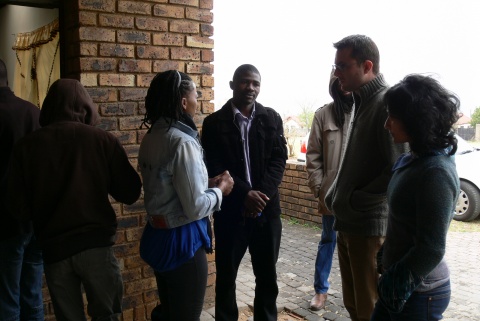

(Listen to the actual debate at http://www.bbc.co.uk/radio/player/p00x8h4d)
Ikamvanites in Gauteng were invited to take part in the BBC Africa Debate at the University of the Witwatersrand on the 31st of August. The question posed was: South Africa at 18- Does black and white still matter in the rainbow nation? (Unfortunately, due to the nature of the topic and the manner in which BBC radio created the racial references, this article will also be using such terms.)
The debate was hosted by BBC radio presenters, Audrey Brown and Karen Allen, and a panel of speakers selected by BBC in an attempt to represent the “Born Free Generation” as people born on or post 1994. The panel was a strategized mix of Black and White persons from St Benedict’s Private School, Pretoria Boy’s High and Wits Students in an attempt to represent “all” youth. The audience consisted of political party representatives, organisations like Ikamva Youth and academics.
The panellists were divided both racially and with their opinions. However, their opinions were not divided according to race as predicted. Throughout the debate, depending on one’s personal background, circles of influence, experiences and current state of affairs, people felt and saw things differently.
Some youth stated that race does still matter and is still used as a form of identifying and relating to people – finding a commonness (based on cultural, linguistic and socio-economic) amongst a diversified crowd and finding it easier to socialise better with people who have the same social backgrounds. Is this based on the fear of rejection and the need for belonging that most humans feel? On the other hand, as highlighted by the presenters, race is possibly merely used as a code to cover up other issues, such as how race is experienced on a social level. It was great to see that after the debate, the IkamvaYouth learners, also Born Free, interacted with people outside of their normal circle – spreading their horizons.
Some of the issues raised involved nationalisation,education and poverty. A poll was raised and showed that the majority of the attendees were against nationalisation. In terms of the economy, some ‘Born Free’ learners argued that the need is for South Africa to focus on the mines and entrepreneurs to grow the national economy in order to develop society. The issue of shared wealth was then raised and with this race dimensions came up again. A majority of the audience share the view that the majority of poor people are black because the majority of South Africans are black and it is an underdeveloped country – hence the poverty. However, many still see it as: Black people are poor because they are black and financial status is a racial issue construed by the past racial injustices.
Most issues that were given attention were national issues. Policies of Apartheid reformation such as Affirmative Action, BEE and the Constitution were brought up and their role in healing the racial divide were questioned. Unemployment and access to equal opportunities is an evident issue that maintains the gap between the rich and poor. With statistics showing that South Africa has overtaken Brazil GINI ratio – wealthiest. White per capita is 8 times more than black per capita.
This shows that real issues facing South Africans are issues of inequality based on many issues with race only being a structural component created by history and inherently inherited.It was largely seen that differences in race still matters only because South Africans make it matter. All the views of participants were forcibly related to racialism and were rarely from a personal experience of injustice. It seems that society continues to insist on segregation economically, linguistically, geographically and ethnically. One of the audience members noted that: ‘the rainbow colours never mix’, maybe it is inherently human nature to distinguish through separation rather than taking advantage of differences to enhance the whole. There is a shared fear of being different because South Africans were once forced to be different based on race only. The question posed was: when will South Africans stop being forced as well as force ourselves to view one another as Black and White?
IkamvaYouth is at the core at tackling these issues and is a community that is aware, wants to be heard and has the power to make a greater change – The views many Ikamvanites have are from a personal and sincere point of view. These views matter and make issues and discussions more linked to the humaneness of the issues people face on their daily lives.

Ikamvanites, Speak Out! Only you can represent your views with the intensity that they should be viewed. If you feel strong about something – Shout!
Thank you IkamvaYouth for showing us that our voice matters!
Written by Kihisha Suleman (Volunteer in charge of Career Guidance at Ebony Park)
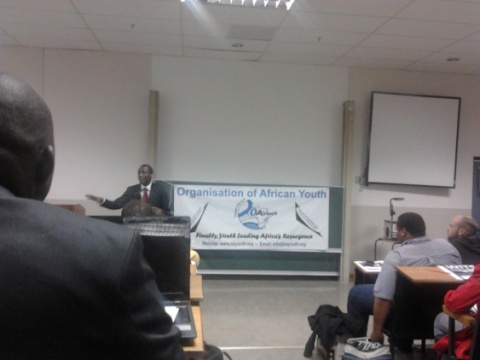
The event, which took place on the 18th of August, was an attempt at creating a platform for the youth as individuals, and representing organisations, to discuss issues and challenges facing South Africa, and contribute in generating solutions. The event was hosted by the Organisation of African Youth, in partnership with the Wits Disability Unit and The Consulting Academy.
The Symposium, the first of many that shall foster platform for the youth to begin setting the agenda and enabling environment to discuss issues affecting the country as a whole, and not remain pedestrian by-standers in issues of national interest. According to the official guest speaker, Patson Malisa,”We (the youth) are the most important component towards the change and revival of the African Continent,”.
As the crowd discussions commenced, the audience still referred to “they” and “I” rather than forming a collective group of responsible youth. Patson highlighted the importance of values such as selflessness and the power of united voice as the youth.

A freelance journalist for Mail & Guardian attended the event and was in search for answers. I took a leap to market IkamvaYouth and told him the importance of the event, and that IkamvaYouth as an organisation consisted of youths that are motivated to resolve issues surrounding the education crisis in South Africa. I informed that the IkamvaYouth model has seen a by-the-youth, for-the-youth revolution in education for all beneficiaries and volunteers.
Representatives of other organisations such as Africa Tycoon and Pretoria Boy’s High provided their perspectives. The lack of leadership was addressed and seen as due to a lack of responsibility and the issues of leaders of the majority being chosen by the minority.
The second issue raised for discussion looked into the gap between the rich and poor. I personally gave insight, stating that the problem lies with a misconception of the meaning of wealth as “What others have that I do not have”. I then provided an alternative school of thought based on the concept of individuals needing to define their own meaning of wealth to attain their personal success. Similarly, one academia stated that the term ‘rich’ must be measured in terms of productivity as that is a true reflection of the attained resources.

The Symposium was a great attempt to a solution driven platform by the youth. While there remains a long way to go in achieving a holistic dimension to contributing to making our country and Africa a better place for everyone, the small efforts of helping one learner at a time as we do at IkamvaYouth is a great step that must never be despised. As the youth, we have what it takes to address all the ills affecting our communities, if only we can be a united front to this end!!
-Kihisha Suleman-
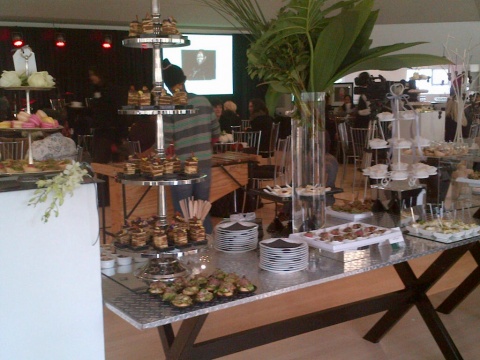
Zamo Shongwe, the IkamvaYouth National Coordinator has been featured in a Mail and Guardian Book called, ” The Mail and Guardian Book of South African Women.” Tuesday 7th of August was a very memorable day for IkamvaYouth as the nation celebrated and acknowledged Zamo and other women who have dedicated their lives to making South Africa a better nation. These women featured in the book, were noted to be women who have achieved the impossible, frequently with few or no resources.
The 2012 edition of the book was launched at Middleton Hotel in Sandton and was filled with laughter, fun, art , entertainment and a call for women to do more in our communities. The book which started seven years ago is a celebration of our country’s women and is supported by Nedbank.

You can check out the book by clicking here and Zamo’s profile can be found by clicking here.
We are all so proud of you Zamo!













 Lloyd Lungu
Lloyd Lungu